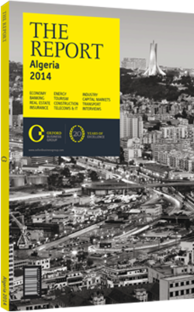This chapter includes the following articles.
Financial Services

The banking industry in Algeria is characterised by a high level of stability and ample liquidity, which owe much to the country’s robust hydrocarbons revenues. Lending to the economy has been growing strongly, albeit from a low base, and while intermediation rates are low, plans to relax a government ban on consumer credit and launch a new credit registry in 2015 should help facilitate more lending in the coming years. Algeria’s stock market remains modest in size, with a market capitalisation equivalent to around just 0.1% of GDP – a result in part of the country’s surplus liquidity and accessible bank lending. However, recent years have seen the first equity listings by private sector companies on the exchange, and plans by the government to float stakes in eight state-owned firms should have an enormous impact on capitalisation. A number of proposed reforms, such as plans to remove the requirement for bank guarantees for bond issuers, should help to further boost market activity in coming years. The Algerian insurance market is underdeveloped by regional standards, with penetration particularly low in the life segment; however, the sector has witnessed strong expansion in recent years. State-owned firms still dominate the sector, though private insurers are gradually increasing their market share. Following the successful separation of life and non-life activities, the life insurance segment should continue to see particularly strong growth, albeit from a low base.
This chapter contains viewpoints from Mohammed Laksaci, Governor, Bank of Algeria; and Adel Si-Bouekaz, Managing Director, Nomad Capital. It also contains a dialogue with Youcef Benmicia, CEO, Algerian Insurance Company; and Nacer Sais, CEO, Algerian Insurance Society.

